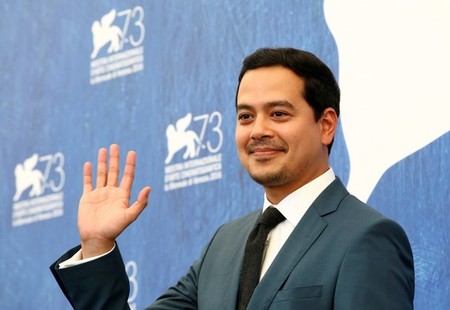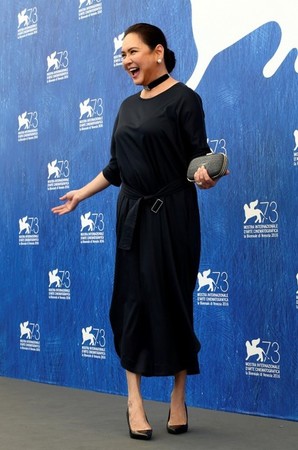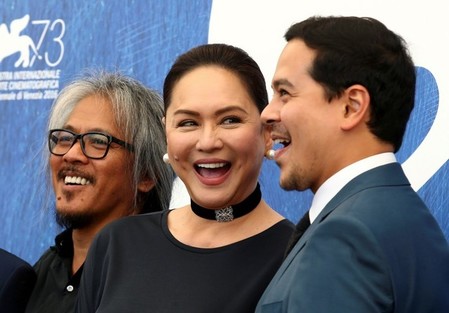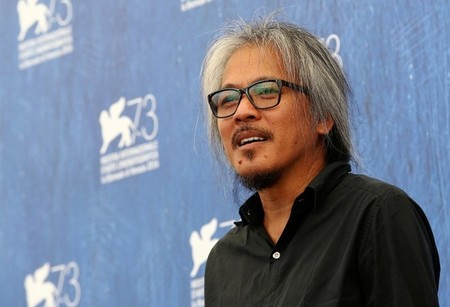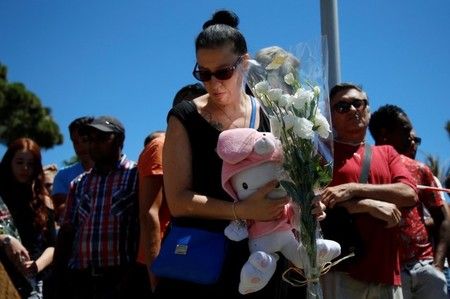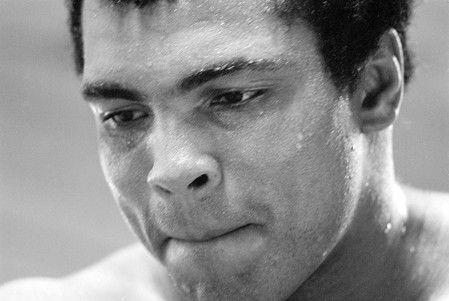Advertisement
Chance to work with Lav Diaz tempted actress back to the screen
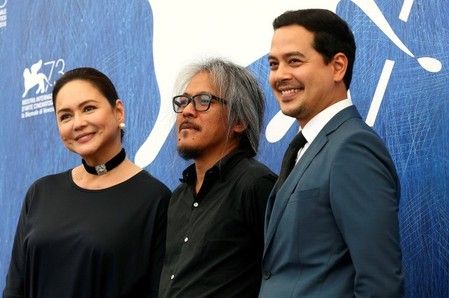
By Agnieszka Flak
VENICE (Reuters) – It was director Lav Diaz’ art of exploring human drama at length that tempted Charo Santos-Concio back to the screen after nearly two decades, the actress-turned-media executive said at the Venice film festival on Friday.
Santos-Concio plays the lead in “Ang Babaeng Humayo” (The Woman Who Left), a 226-minute Philippine drama about revenge and forgiveness that premiered in Venice on Friday.
It is one of 20 U.S. and international films competing for the coveted Golden Lion that will be awarded on Saturday.
“I really wanted to work with this director … I wanted to understand the aesthetics behind his cinema, why he produces long-running films,” Santos-Concio, the former president and CEO of ABS-CBN Corporation, told Reuters.
“He doesn’t manipulate the audience, he doesn’t manipulate the characters, he allows the characters to go through the journey and to feel the journey.”
The movie tells the story of Horacia, a school teacher who spent 30 years in a correctional facility for a crime she did not commit. When she is finally released, she struggles with the desire for revenge and forgiveness.
Diaz shot the movie in black and white and on a Philippine island where Santos-Concio grew up.
“Emotionally she is attached to the geography, to the grounds, so it’s easier for her, you can actually feel it, she was very emotional about the location, it helped contextualize the character,” Diaz said.
“The Woman Who Left” is premiering just months after Diaz’s more than eight hour “Hele Sa Hiwagang Hapis” (A Lullaby to the Sorrowful Mystery), featured in Berlin.
“Whenever I shoot a film, I’m not thinking about length … my cinema is very free in terms of structuring and form,” the 57-year-old director said, calling for others to challenge the boundaries of conventional cinema.
“I can shoot even without money. I have my own small camera, I have my small crew … we go to an obscure island, invite some actors, they’ll be with us for a month and we create some cinema there,” he said.
For Diaz, his latest movie is a search for what defines the Philippines after years of foreign rule and the leadership that followed. But he also challenges viewers to examine why there is so much trauma and torment in society.
“This is the 21st century and we’re still barbaric, we are still very primal, we still act like animals. Why? We should question that,” he said.
(Reporting by Agnieszka Flak; Editing by Alison Williams)


